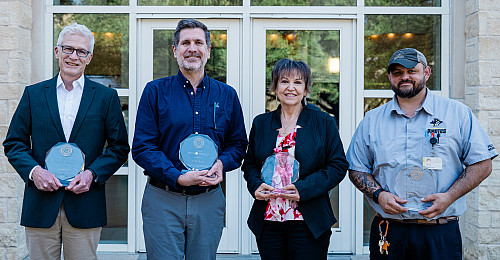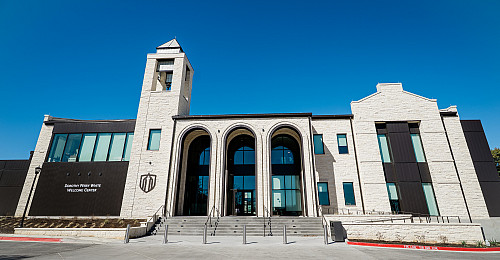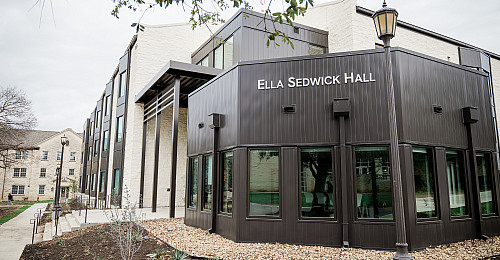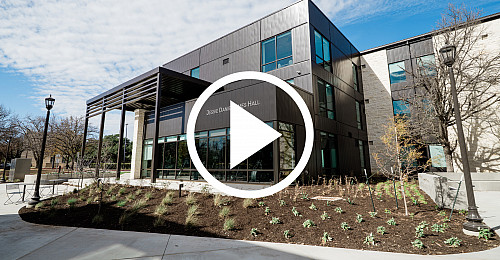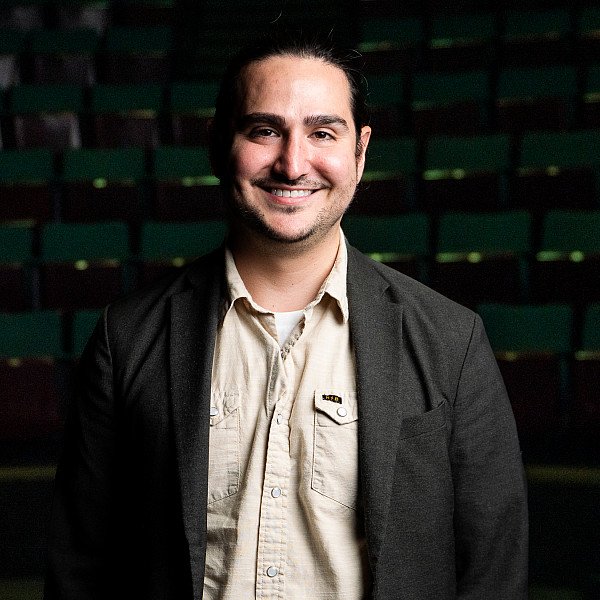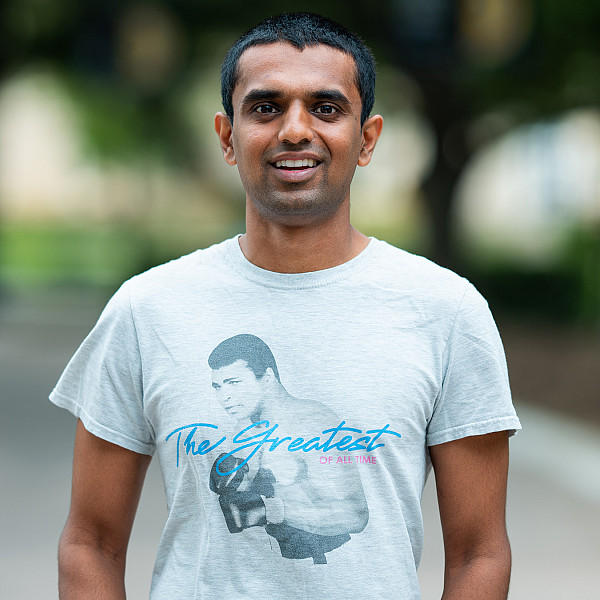News
Meet Our World-Class Faculty: Chandrayee Chatterjee
A conversation with Assistant Professor of Economics Chandrayee Chatterjee.
March 28, 2023
March 28, 2023
Open gallery

Please introduce yourself, and tell me a bit about your background.
I’m Dr. Chandrayee Chatterjee, and I’m an assistant professor of economics in the Department of Business and Economics at Southwestern. I have a Ph.D. in Economics from Georgia State University, and my research is primarily in the fields of health and labor economics and uses insights from behavioral and experimental economics.
I grew up in India. I have an undergraduate and master’s degree in economics from India. I worked as a credit risk analyst for a while before I decided to do a Ph.D. I graduated in 2020, so I’m a pandemic Ph.D. Then, I worked as a faculty member at Southern Utah University before joining Southwestern in the fall of 2022.
When did you move to the US?
I moved to the US in the fall of 2014 for my Ph.D. I finished my master’s in 2012, and because my mom is a professor, she wanted me to get into academia. But obviously, you don’t do what your mom says; you do the opposite. So I decided to go and do the whole corporate thing. I did for about one and a half years and was miserable. Then, I decided to get into research. I applied to schools with a good department for what I was looking for, which was experimental and behavioral economics, and ended up going to Georgia State University. Another reason is that I’m from Kolkata, which is in eastern India and home to two Nobel Prize-winning economists, Amartya Sen and Abhijit Banerjee. That has really inspired me because I went to the same institutions that they did.
How did you hear about Southwestern, and why did you want to work here?
I have always been interested in a liberal arts college, mainly because the University values teaching that promotes and supports undergraduate research and the faculty’s collaboration with students. The smaller class sizes allow you to have that kind of interaction. So Southwestern had always been on my radar. Funnily enough, Southwestern contacted me in 2020, asking me to teach a course online, but I couldn’t because I was in a different job. When I decided to look for a new opportunity, I saw that Southwestern was hiring, which was a no-brainer.
Another thing that was important to me was concentration on Paideia. My research is something that has implications as well as inspirations from other disciplines. I work on things like discrimination, marital choices, and health outcomes. Implementing the Paideia philosophy this early in a student’s career perfectly aligns with my academic goals.
How have you enjoyed your time at Southwestern thus far?
It’s been great so far. All my interactions with the students and my colleagues have been great. I’m so thankful for my department because they’re a bunch of genuinely good people that you want to come into work with. I feel like they’re invested in my success as well. I’ve also enjoyed the Wednesday Sweet Surprises.
Is there a basic economic principle or theory that you would want everyone to know? What is it, and why is it important to know?
Several come to mind, but if I had to choose just one, I would say the principle of opportunity costs. Economists are mainly focused on helping people make better choices, and how we look at costs is slightly different. We don’t look at costs as just being your out-of-pocket expenses. Opportunity costs are thinking about the following questions: what is the value of your best foregone alternative when making a decision? So what are you giving up? This is so important to consider for many decisions. For example, whether you go to college. When making that decision, we’re considering the out-of-pocket cost, like the tuition and room and board. However, there’s also a foregone cost, which is the cost of what you could have earned if you had worked instead of going to college. That makes it much more costly to attend college if you incorporate the foregone cost. When I say that, students in my class are like, Oh, my God, did I just make a really bad decision? But the point of that thought exercise is realizing, no, because when you get out of college, your salary is higher in the long term and at the beginning of your career than if you would have started working right after high school. The benefits outweigh the cost. We often make bad choices because we don’t account for these opportunity costs. That would be a really important principle.
Where would be a good place to start if non-business/economics students wanted to learn more about the economy?
There are a bunch of excellent podcasts. Freakonomics Radio is a great podcast if you’re interested and want to learn about economics. They also have books, Freakonomics and Super Freakonomics, which are great if you want to read. St. Louis Fed also has a bunch of podcasts. One of my favorite ones is Women in Economics, which focuses on work by really interesting women economists. Also, they have an Economic Lowdown series. These podcasts and books are a great place to start.
What are you looking forward to teaching in the coming semesters?
I’m really excited to teach behavioral economics. Going forward, I want to incorporate some part of experimental economics into it so that students can run their own experiments.
What do you enjoy doing outside of work?
I’m a huge foodie. My students know this; they come and give me recommendations, so I love trying out new cuisines, and Austin is a great area for that. I like to cook and bake and enjoy trying out different recipes. During the pandemic, I got into food photography. I’m learning the basics of that and blogging.
What is something that students would be surprised to learn about you?
I was always scared of public speaking growing up. Students probably wouldn’t guess that because I have to face a classroom full of students daily. Sometimes before a big presentation, I get anxious. I know many students struggle with this, so I’ve tried to incorporate mini-presentations in my class, which (hopefully) helps them overcome it. I just wanted to let them know they’re not alone.
Do you have any advice on how to get over that anxiety?
Trying to challenge yourself always helps. Sometimes it backfires, which is okay. You’re not the only one who’s uncomfortable. If you’re at a seminar where a bunch of people present, know that many people are going through the same emotions. I think a lot of that anxiety comes with the fear of judgment. When you’re presenting in a friendly crowd, like in the classroom, use those opportunities to overcome that fear; that helps.
Do you want people to know anything about you that I haven’t asked?
In my previous life, when I was not an economist, I sometimes sang with jazz/bluegrass bands. I’ve also learned Indian classical music for about 15 years, but that’s a life I don’t get to live anymore.
Help support our world-class faculty like Chandrayee by making a gift to Southwestern.


